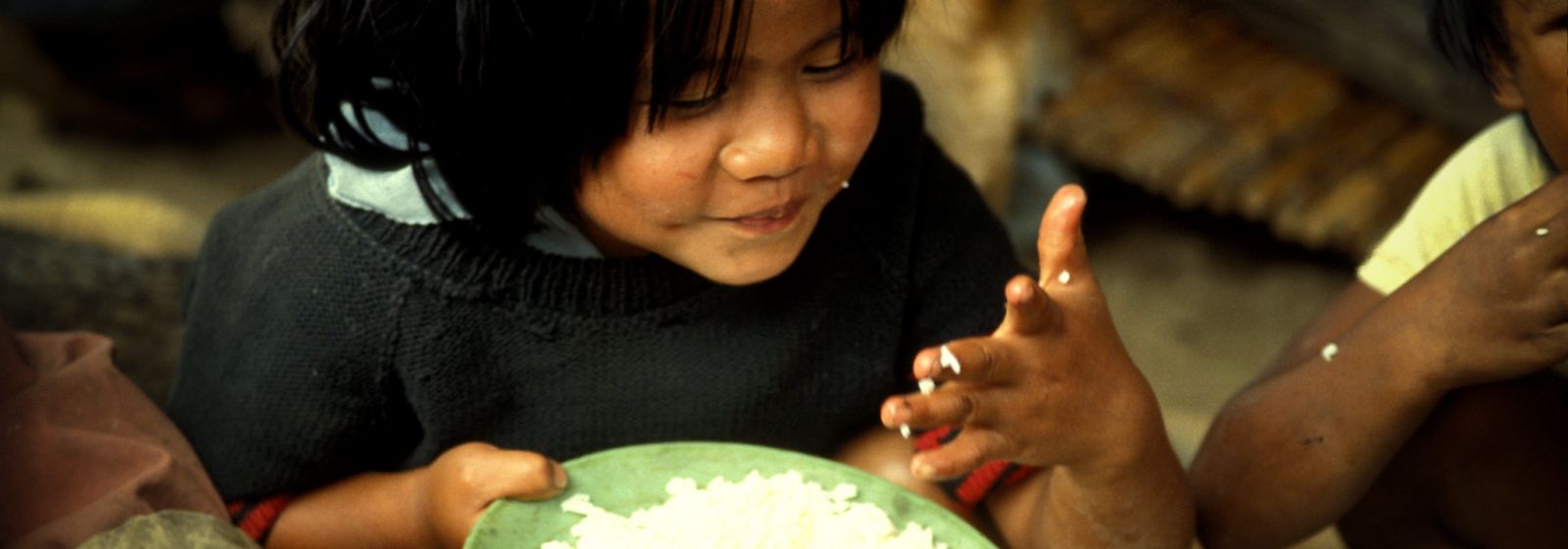Food security goes beyond hunger – it stretches to include regular access to safe, nutritious, and affordable food.
While the number of people suffering from hunger globally is rising above 820 million, an additional 1.3 billion people are affected by moderate levels of nutrition insecurity because they have inadequate access to safe and nutritious food.
More than half of the world’s population, including many of those living in poverty, rely on rice for most of their daily calories because they cannot afford – or do not have access to – nutritious foods such as fruits, vegetables, meat, and dairy. As a result, malnutrition is a real threat, creating immediate and long-term health problems including stunting, heart disease, diabetes, and obesity.

We’re working to improve the diets of these 4.5 billion people.
IRRI is developing biofortified rice varieties with enriched micronutrient content such as provitamin A, iron, and zinc, as well as identifying rice varieties with lower glycemic index and antioxidant properties.
We’re improving the quality of rice by reducing the risk of heavy metal contamination, and working with partners to promote diversified rice farming systems that broaden access to more nutritious choices.
We’re also researching options to make market value chains more efficient – helping bring down the overall cost of food and increasing accessibility.

Related Projects
Healthier Rice Program
Related News
- Philippines becomes first country to approve nutrient enriched Golden Rice
- Philippines approves Golden Rice for direct use as food and food, or for processing
- Golden Rice Achieved Food Safety Standards In Three Global Leading Regulatory Agencies
- ‘Golden Rice’ secures regulatory approvals
- Genetically engineered rice with high levels of iron and zinc is developed
Low GI Rice
Rice-Fish Systems
Food security and COVID-19
Food Choice and Gastronomic Systems Research
- Unraveling heterogeneity of consumers’ food choice: Implications for nutrition interventions in eastern India
- Survey data on heterogeneity in consumers’ food choice in eastern India
- Expert elicitation database capturing diversity and cultural drivers of food choice and nutritional implications in eastern India
- Capturing diversity and cultural drivers of food choice in eastern India
- Gastronomic systems research










